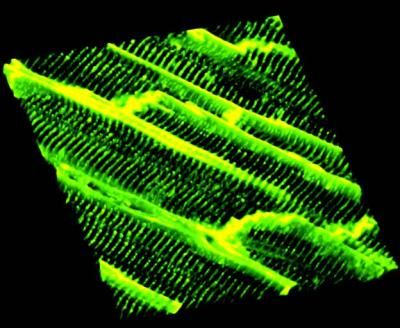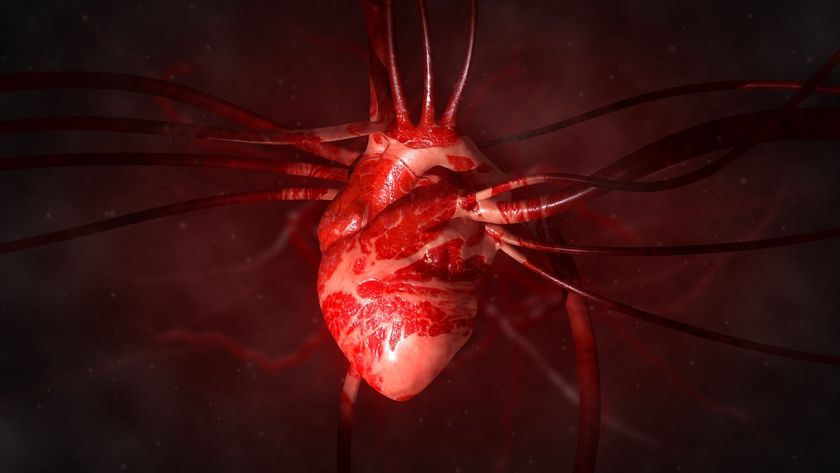Heart Muscle Changes Precede Heart Failure

When hearts fail, there are usually some bad things going on beforehand. One sign is a disruption of a structural component in heart muscle cells, a new study finds.
The structure is a highly organized network of grooves in heart muscle membrane called T-tubules. This network is essential for transmitting electrical signals to the cell's interior where they are translated into contractions that make the heart beat. It was previously known that T-tubules become very disorganized during heart failure .
The new study, published in the Aug. 20 issue of the journal Circulation Research, shows that this disorganization starts well before heart failure occurs during a stage known as compensated hypertrophy, when the heart muscle is enlarged but still able to pump a normal amount of blood around the body.
"Although heart function appears normal during compensated hypertrophy, we found that there already is structural damage," said Dr. Long-Sheng Song, assistant professor of internal medicine at the University of Iowa Roy J. and Lucille A. Carver College of Medicine. "Our study suggests that things are going wrong very early in the process, and if we could prevent or slow this damage, we might be able to delay the onset of heart failure."
The researchers used a state-of-the-art imaging technique called laser scanning confocal microscope to visualize these structural changes in an animal model of heart failure. The study compared T-tubule structure and heart function at different stages of heart disease and found that the more disorganized the T-tubule network becomes, the worse the heart functions.
Moreover, the researchers found that T-tubule disorganization was also accompanied by a reduction in levels of a molecule called junctophilin-2, which is thought to be involved in formation of T-tubule networks. In cell experiments, loss of this molecule led to reduced T-tubule integrity.
Although the new findings are not ready to be applied in a clinical setting, understanding how T-tubule disruption occurs may lead to new ways to diagnose or treat heart failure.
Sign up for the Live Science daily newsletter now
Get the world’s most fascinating discoveries delivered straight to your inbox.
Image Caption: UI study shows that T-tubule disruption starts to occur even before any decline in heart function is detectable. The study also finds that T-tubule disorganization gradually worsens over the progression of heart disease and correlates with the severity of cardiac hypertrophy and predicts heart function. Understanding how T-tubule disruption occurs may lead to new ways to diagnose or treat heart failure. Credit: University of Iowa













